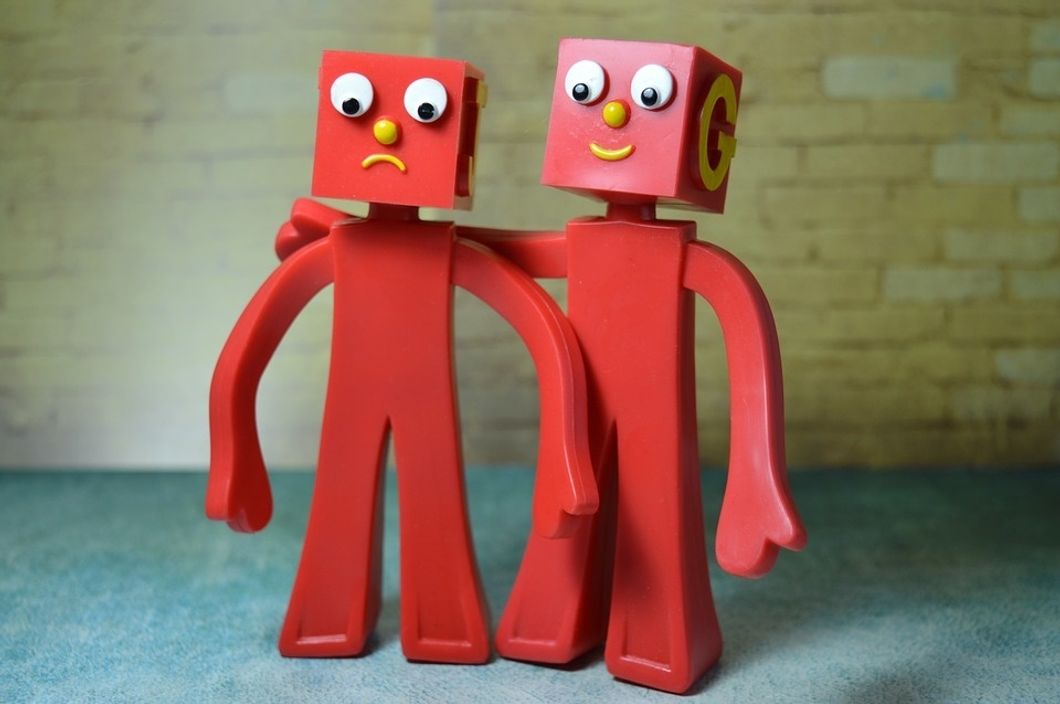We live in the era of social media. Many individuals, in particular teens and millennials, spend hours every day online, crafting their ideal online persona on apps such as Instagram, Twitter, and Facebook. The person we are online is often how we want to be seen when offline as well. Because of this, the number of followers one has or the number of likes/comments one receives on their posts can become affirmative factors that can easily contribute to determining self-worth. In reality, someone with 10,000 followers isn't necessarily any more happy, special, talented or successful than someone with just 100 followers. And just because a person has a lot of followers does not mean that they have the same number of friends in real life. But even if they do have many friends, that shouldn't make anyone with fewer friends feel inferior or upset, either. This phenomenon is nevertheless very common, especially in environments like high school and college.
In these places, many people judge others based on the number of different friends they are seen with, or conversely not seen with. Typically, it is easy to negatively judge individuals if they are by themselves or are seen with the same 1-2 friends. On the other hand, if someone is frequently eating lunch with a large group of friends, or posts a bunch of pictures of them going out with different people, observers may think that this person is "cooler" and more "popular." We also tend to affiliate popularity with things like superiority and increased happiness, making it easier to discriminate against those who aren't "popular." In my opinion, this is is all wrong. Society judges "popular" individuals almost as incorrectly as how they judge "less popular" individuals as well.
I felt this judgment intensely this past semester. Because I like to put myself out there more than the average person, I ended up meeting a lot of different faces this past year at college. However, I was only really close to a few of them. The rest I still regarded as friends, I just didn't tell them my life story or hardships. I was okay with this, however, because I didn't feel that I needed 30 best friends in order to be happy. Two or three solid friends was more than enough; I just needed a few people who'd be there for me when I needed it.
But as lucky as I am to have made so many great friends this past year, part of me would sometimes wish I had just five or six really good friends that all knew each other rather than many close-but-not-super-close friends that knew a few. This is just because it would be much easier to get to know and spend time with the same five or six people in a friend group rather than try to make plans with numerous different people one on one.
I'm not complaining by any means. I'm grateful to have so many friends, I just want to address the misconception people have of those who are seemingly "popular" because they have many friends. I don't think I'm any happier than another person who has one or two friends that they spend a lot of time with (and therefore are most likely quite close to). Overall, when it comes to friends, quality should matter over quantity. If you have a lot of friends, that's fine, but if you don't, that's also fine. In the end, we should spend time with people that make us happy and bring out the best in ourselves.
Quality over quantity.
- My Friends Taught Me That Quality Is Better Than Quantity ›
- To The Girl With A Few Close Friends, Quality Beats Quantity Any ... ›
- I'll Take Quality Friends Over A Large Quantity Of Friends Any Day ›
- The Importance Of Quality Over Quantity In Friendships ›
- Friends: Quality v. Quantity ›
- Friends: Quality v. Quantity ›
- To Friendship: Quality Over Quantity ›
- Friends: Quality Over Quantity ›
- Friendship: It's Quality Over Quantity ›






















